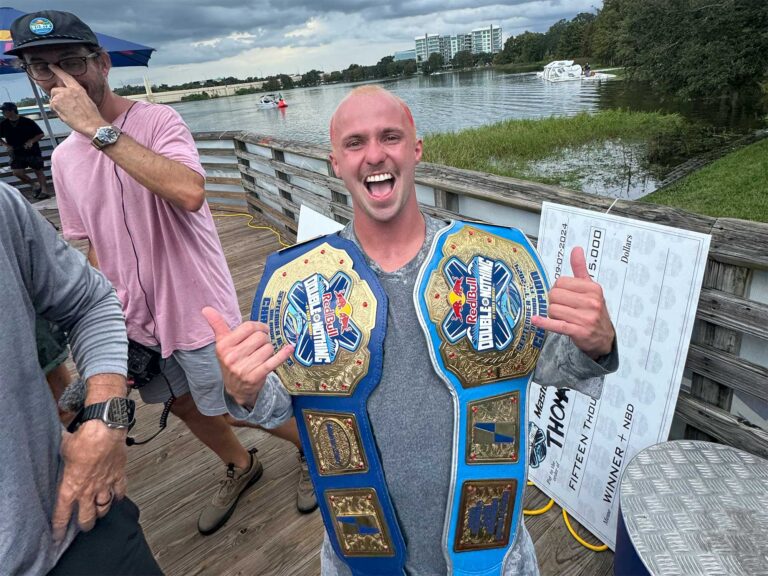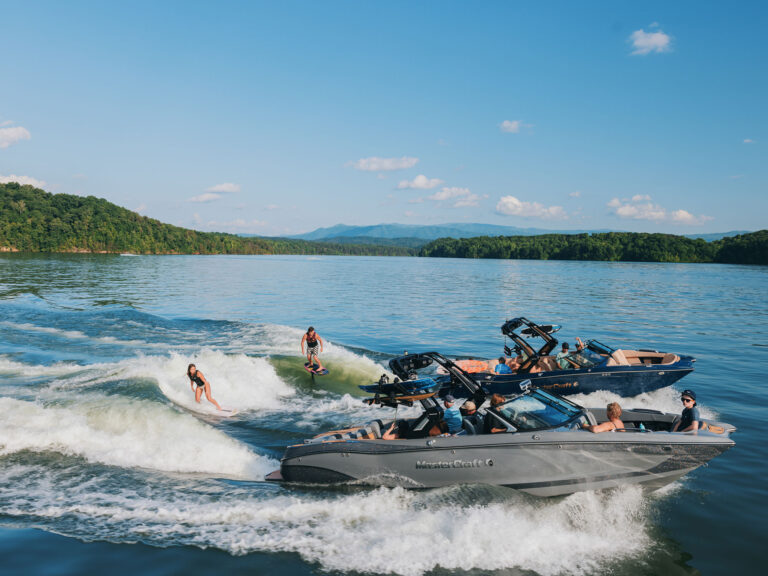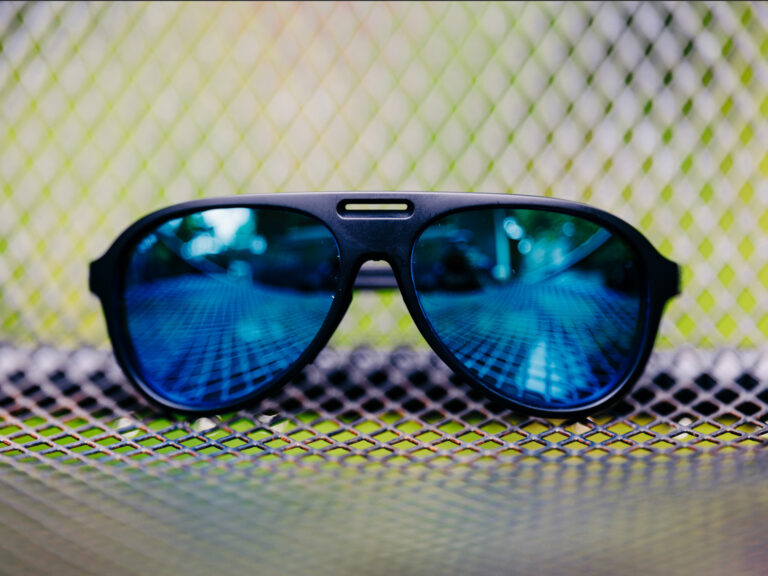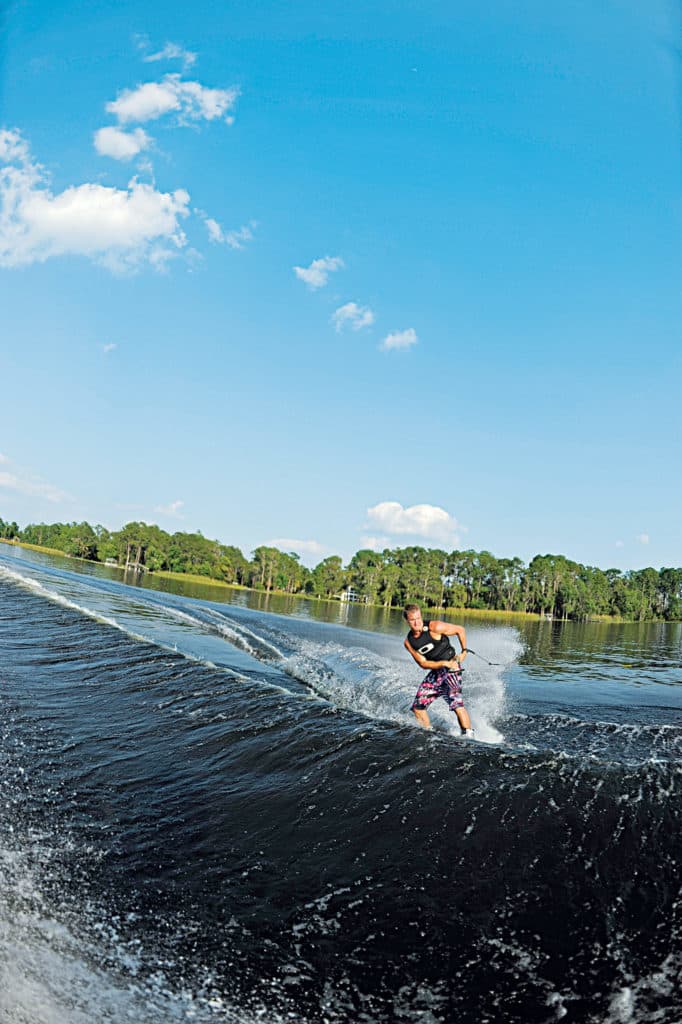
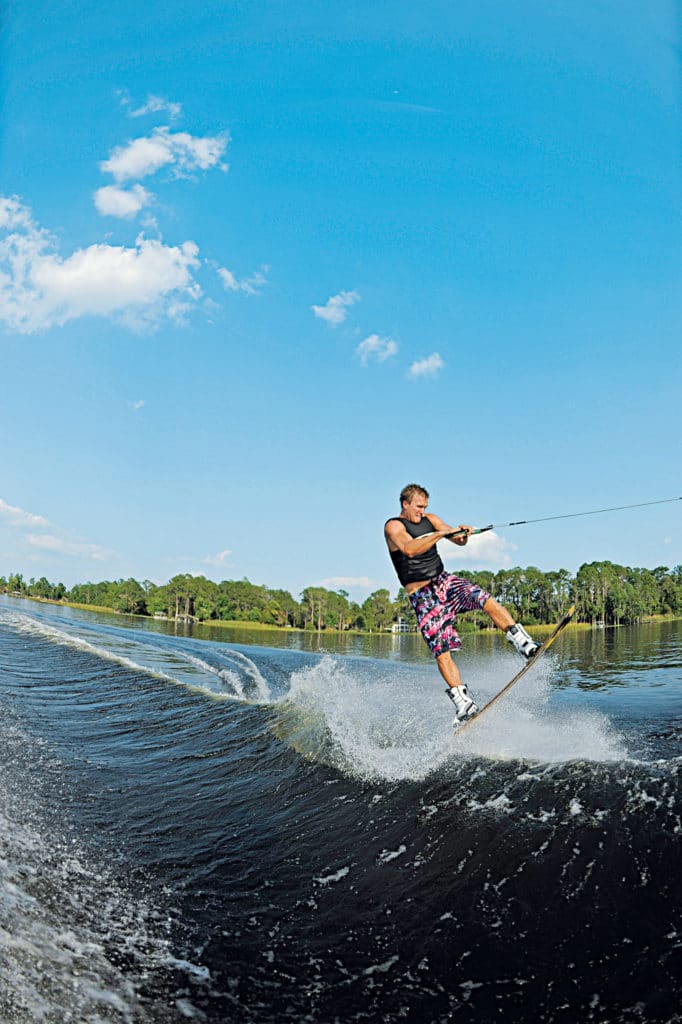
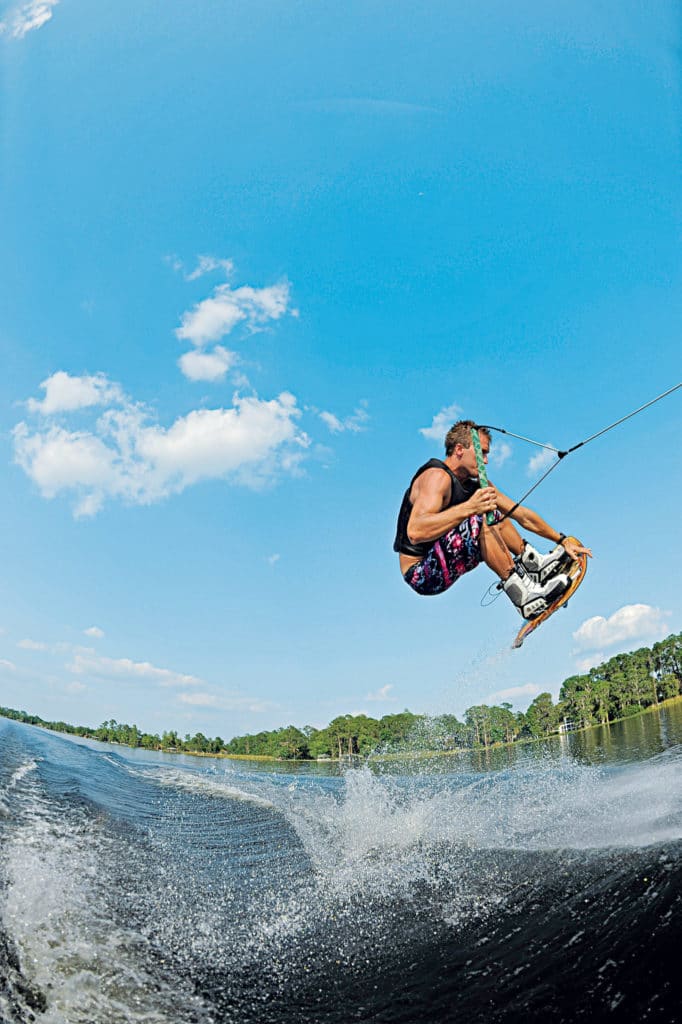
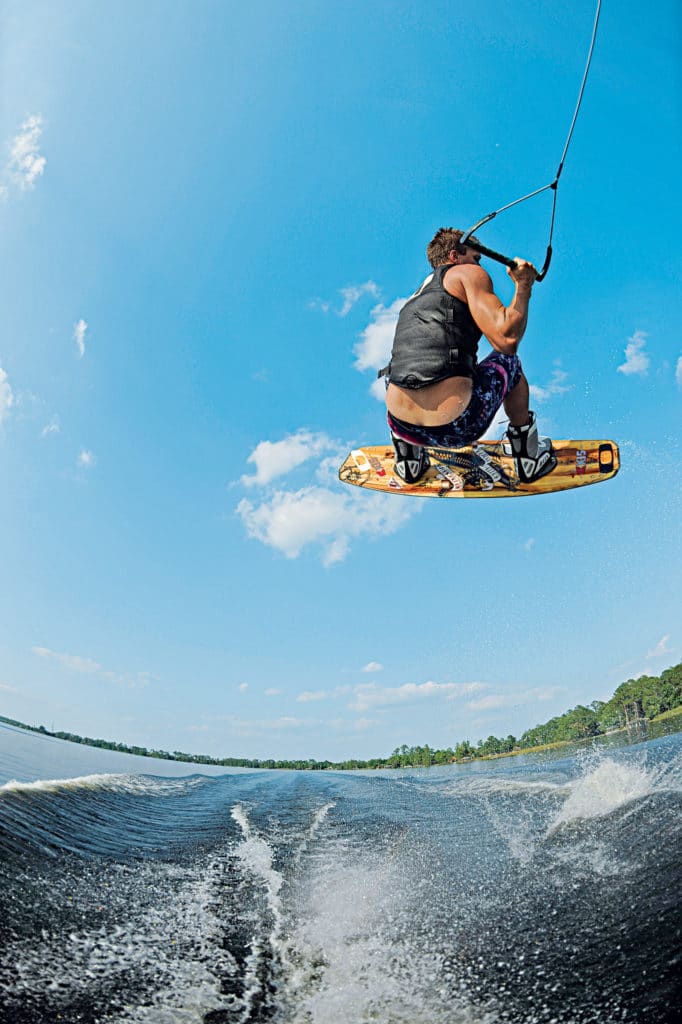
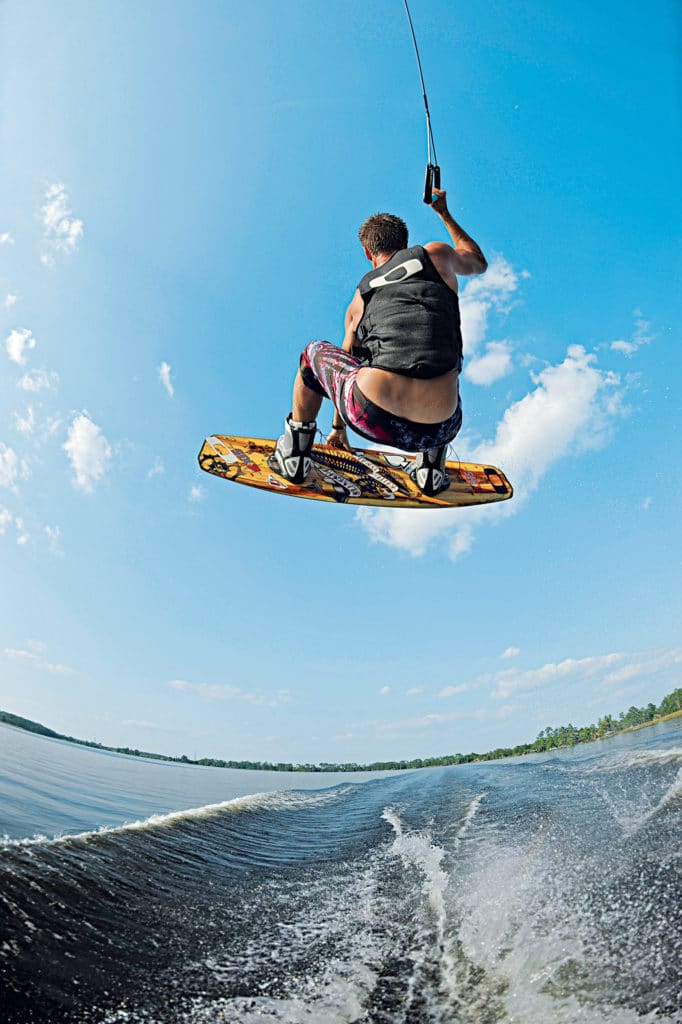
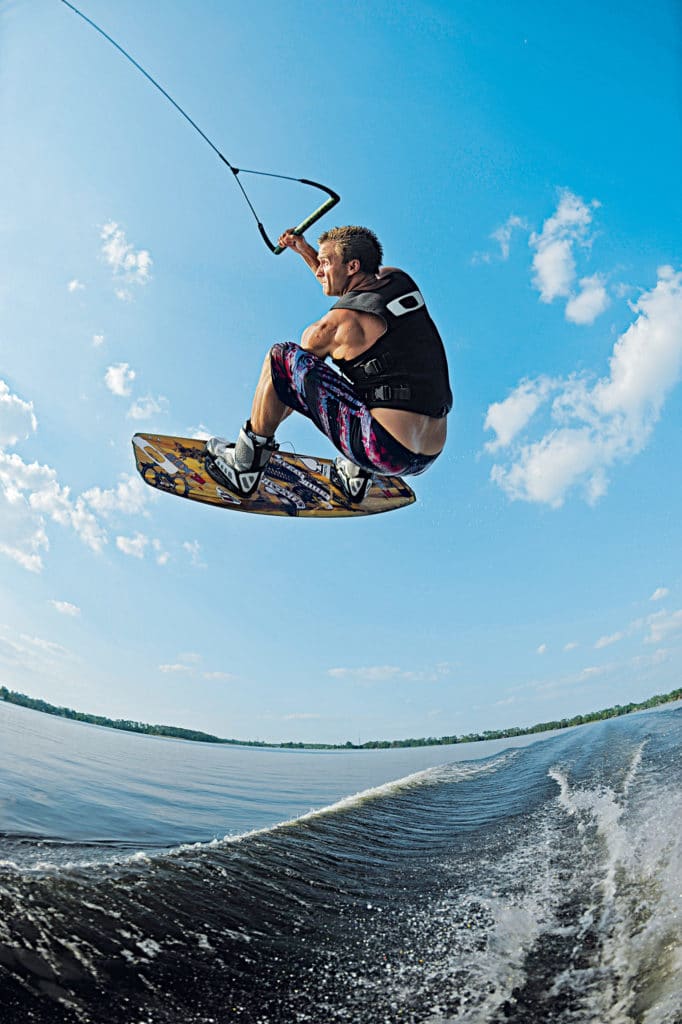
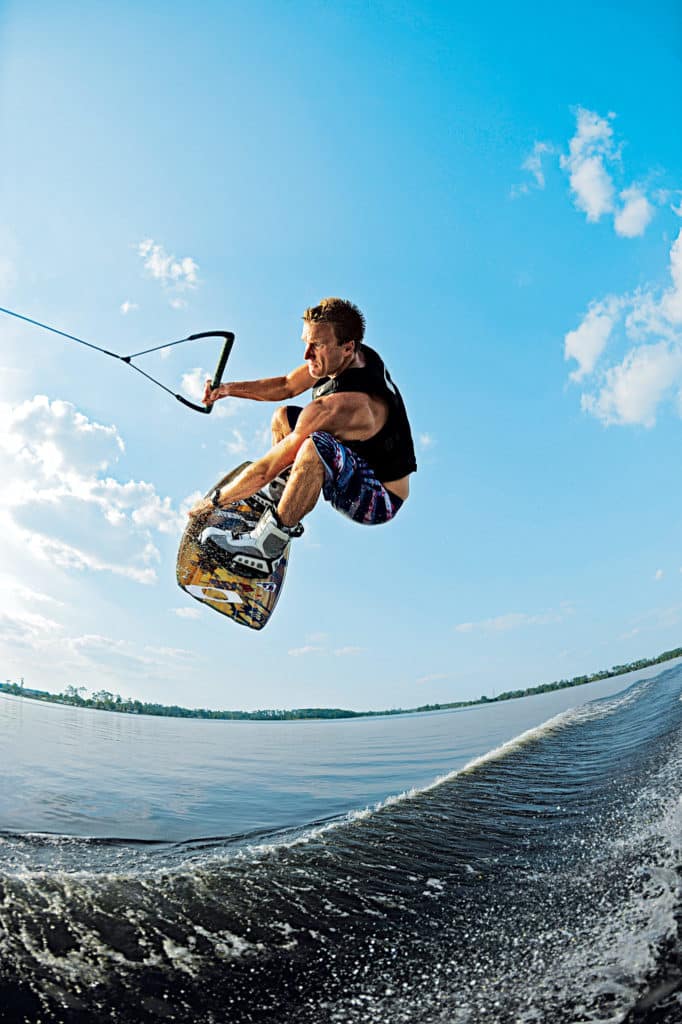
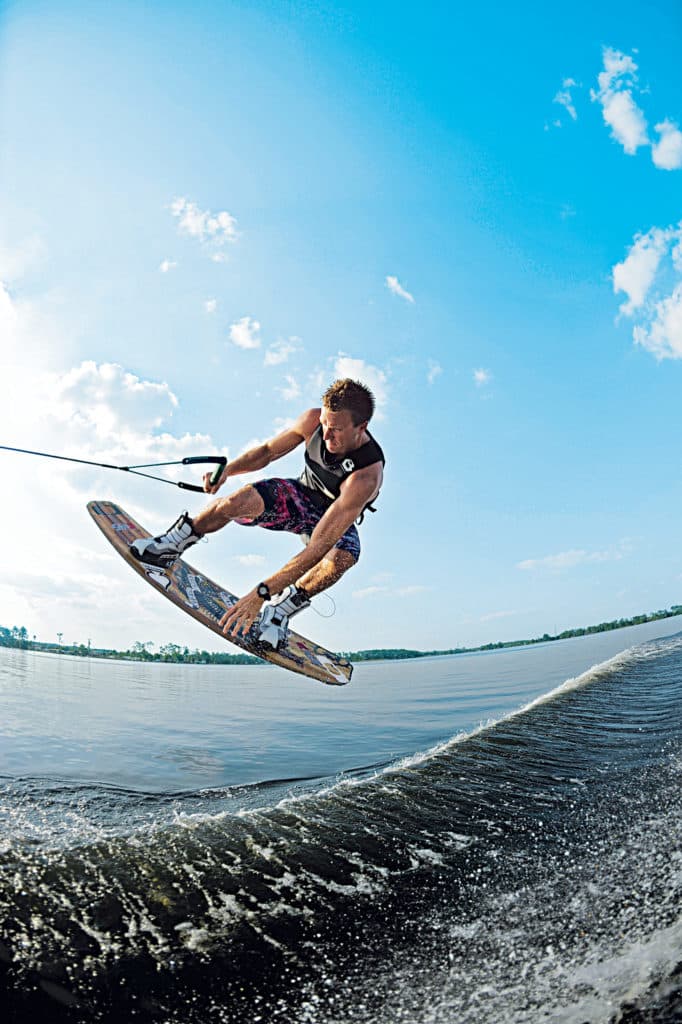
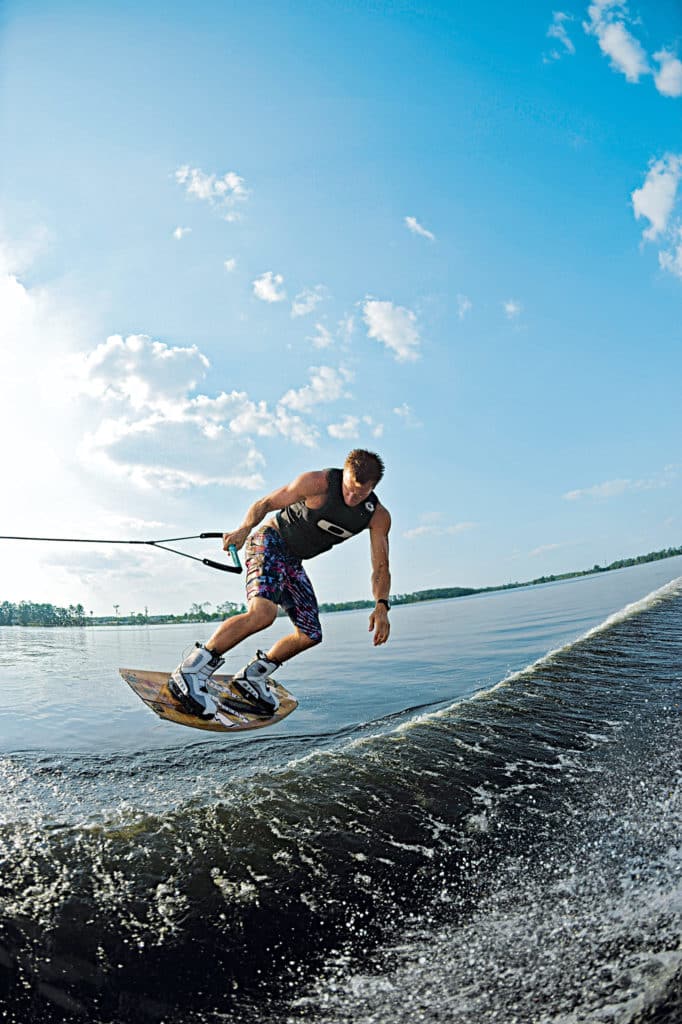
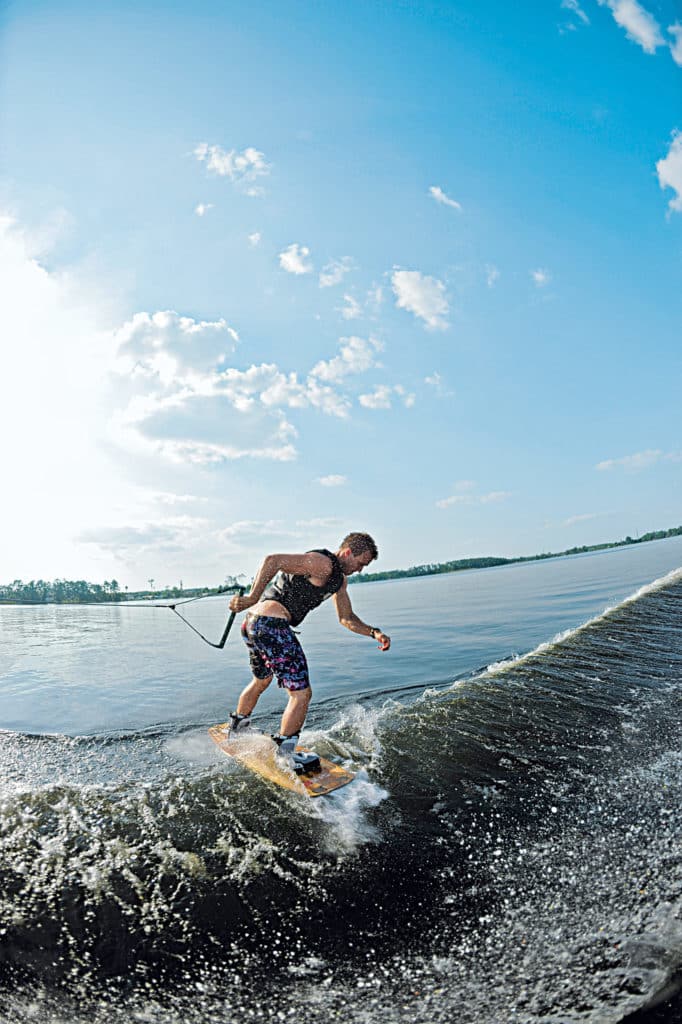
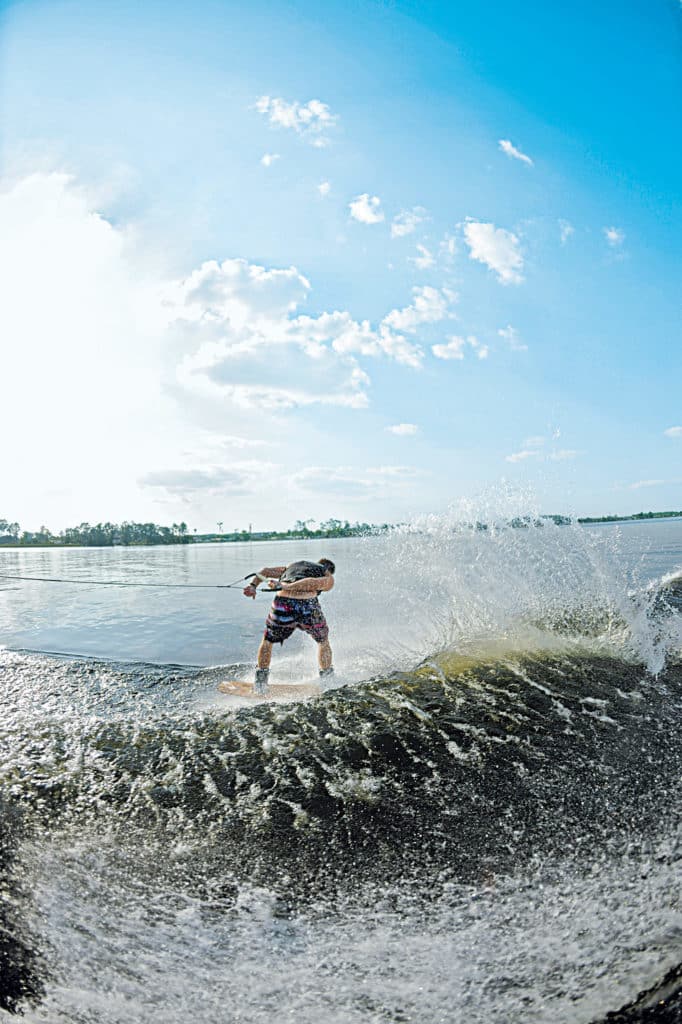
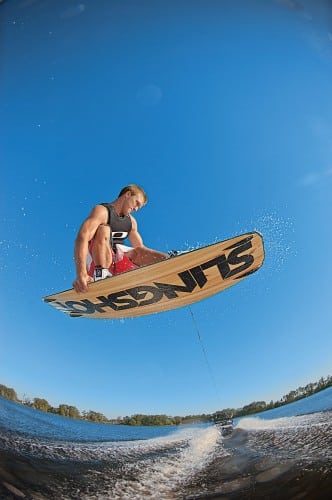
When Keith Lyman reported to basic training at the end of April, he walked away from a dream he’s had since he was 13, but he also realized a dream he’s had for as long as he can remember. See, Lyman has been fascinated by the military since he was old enough to understand things like serving and protecting his country. And even though he fell head over heels in love with wakeboarding as a teenager and went on to an almost decade-long career as a pro rider, Lyman never let go of his original dream job. We talked to Lyman just weeks before he shipped off to boot camp to look back over his wakeboarding career and better understand his reasons for walking away from pro wakeboarding. Words: Luke Woodling Photos: Jason Lee
First off, do you want to tell everyone your plans in your own words? I’ve decided to retire from wakeboarding and join the military. Actually, I just got a phone call today, and my ship date has been moved up from the end of June to the end of April. So four weeks from now, I’ll be heading off to basic.
You’ve talked about joining the military in the past. How long have you been considering it? Joining the military has been in my brain for as long as I can remember. When I was 13 or 14, I fell in love with wakeboarding. I had a huge passion for wakeboarding, and that’s where my motivation was at the time. But my love for the military never went away, and I came to a point in my life where I realized, “Hey, I only live once, and I plan on doing everything I want in this one lifetime.” I’m lucky in the sense that I realized that now, and I definitely don’t take for granted the fact that I’ve had an extremely lucky life. Wakeboarding became a profession for me back in 2002, and I’ve done one thing I’ve really wanted to do for a really long while. Now it’s time to fulfill another dream.
Have you gone back and forth between wakeboarding and the military ever since you went pro? Kind of. Like I said, ever since I can remember I’ve been absolutely fascinated with the military and have always wanted to join. I moved to Florida in early 2000 and one year later 9/11 happened. New York isn’t my home, but I’m from the Northeast and that really hit me hard. I really wanted to do something about it then, but I was still focused on making it as a pro wakeboarder. I was torn, but I realized going pro was what I wanted to do at that time. I still always had a huge respect and a huge love for the military. Just about a year ago, I really made the decision that I’m 27 years old now, and I could continue wakeboarding for probably a couple more years at the level I am now and maybe continue getting better. But with what I want to in the military, I’m going to need some youth left, so I made the decision that now is the right time.
How much can you tell us about your goals for your military career? My goals are pretty simple. I’ve always wanted to serve this country. I really have a huge passion and love for this country, and it’s going to be an honor just to serve. What I’ve signed up to do is badass. It’s a high-speed job, and it’s exactly what I wanted. The contract I was able to get was pretty difficult to get with the branch I’ve chosen to go into. I’m looking forward to getting started and pursuing this dream.
During your pro career, have you had many opportunities to interact with the military or service members? Not as much as I wish I could have, but I was very lucky to meet some pretty badass individuals in the military, and I was able to do some free wakeboarding clinics for them. I was really able to connect with these guys and get them out on the lake. Getting to meet guys like that and thank them for what they do for our country has been a blessing for me. Luckily, I’ve kind of befriended some of them, and it’s been great knowing these guys and getting to share wakeboarding with guys who are heroes in my mind. I have a lot of respect for people who have sacrificed so much so I could be a pro wakeboarder while they’re taking care of our country’s business. I have the utmost respect for people like that, and I want to join their ranks. I want to do my part.
What does your family think about the change of professions? My mom and dad actually met through water sports, so they’ve always been extremely happy I chose wakeboarding as a profession. They have known that ever since I was a kid, I’ve been fascinated by the military, so it hasn’t been a big surprise for them. I think they always assumed it was going to happen at some point. I think my dad is very excited because it’s something he wishes he did at my age. I think they definitely have some concerns because there are two wars going on and times are pretty crazy, but they definitely understand how I am and how motivated I am and how focused I am. I definitely don’t do anything without calculating the risks first. They know exactly where my mind is at, and they definitely have my back.
Joining the military is going to end your pro wakeboarding career, right? I wish there was a way to have my cake and eat it too, but becoming active-duty military is a 100 percent commitment and so is being a professional wakeboarder. I wish there was a way to realistically maintain both, but there just isn’t. It wouldn’t be fair to my sponsors or the military. So I need to focus 100 percent of my efforts on what I’m going to be doing. I’m OK with that. Like I said, I’ve been thinking about this for quite some time and finally decided to pull the trigger on it. Will I ever stop wakeboarding? Probably not, I love it. But as far as riding at the level I have been riding at, I’m going to, unfortunately, have to stop.
Do you see yourself pursing a full-on career in the military? Right now, sitting in my nice, warm home, I would say yes, absolutely. I would love to serve as long as I can. That definitely could change once I’m in there. If you asked me 10 or 15 years ago if I was going to be a lifelong wakeboarder, I would have said yes as well. I can’t realistically say whether I will last the 20 years you need to be a career service member, but, yeah, I’d definitely like to serve as long as I can and do as much good as I possibly can.
A lot of readers will see you leaving what they consider the ultimate dream job and think “Is he crazy?” It is a dream job. The best way I can explain it is: I’ve met some people who have had other options. A good buddy of mine is in the military, and he had other options. He was in his senior year in college and he was a world-class soccer player. He could have done anything he wanted in life, but he wanted to serve and he joined the military and he is one of the baddest dudes ever. It’s people like that who really inspire me. It’s really hard to explain why I want to give up my dream job, and wakeboarding really is my dream job. Wakeboarding stole my heart when I was 13, and that’s all I wanted to do and all I could really see myself doing, but this desire to be in the military never really went away. If anything, it’s gotten stronger with time. People might not ever get it, and that’s OK with me because I’m doing exactly what I want to do.
Let’s take a look back at your career. When and how did you start riding? I came from a family that has always been into water sports, so I grew up around the lake and water. I never had a huge passion for it until I saw wakeboarding on the X Games. For some reason, that really sparked my interest. Shortly after that, I got a wakeboard, and I learned to ride. I was luckily enough that my father looked into a wakeboard camp and sent me to it. I learned a lot of stuff in a really short amount of time, and I just fell in love with it. I went from being an athlete in just about every sport to only concentrating on wakeboarding. From there, it just escalated. I convinced my dad to let me move down to Florida when I was 16 years old. He just knew I had the drive and the passion for it and I was picking up tricks really quickly. So he looked into a place for me to stay in Florida, and that’s how it all started.
How did things progress from there? I ended up moving into the World Wakeboard Center. I lived there from March 2000 until school let out, which was May 2000. That spring, I went back to Massachusetts to do a regional tour with my boat sponsor at the time. Fall was rapidly approaching, and I knew I had to get back to Florida, but I wasn’t sure if I was going to live at the World Wakeboard Center or what. Instead, my sister moved from California to Florida and we rented a house in Windermere. So I was going to school, but it was really difficult for me to find a person to ride with. Then Surf Expo came along and a kid I met in Massachusetts, Ben Greenwood, just so happened to be down there. We ended up hanging out that whole Surf Expo weekend. I was like, “Man, I could totally use a friend down here to ride with all the time,” and he was all for it. That’s how Benny G and I became best friends.
What happened between moving down to Florida in 2000 and going pro in 2002? In 2001, I felt like I had enough tricks to go compete on the Jr. Men’s circuit, and I remember the early season of Jr. Men’s didn’t go well at all. Looking back, it made me realize I was never going to be a competition rider. I was riding really hard and riding the way I wanted to. I was going as big as possible and riding that way in competition isn’t very consistent. It was really difficult for me to do well in contests until Nationals and Worlds. At Nationals, I ended up getting second in Jr. Men’s and that was super motivating. Then I was lucky enough to win Worlds in Jr. Men’s, and that really turned eyes on me. From Jr. Men’s in 2001 to the start of the pro season in 2002, I really started changing my outlook on wakeboarding. It became more about: “OK, I want to go bigger. OK, I want to faster. OK, I want to ride a longer rope line.” That’s all I really focused on, and that’s when I stopped focusing on competitions. I was awfully lucky in the sense that I was able to meet a lot of key people and a lot of the athletes started talking about me even before I started getting published in the magazines. That had a really big impact on me becoming a professional athlete.
You’ve always been known as a free-rider, and it sounds like that was a conscious decision you made early on. Yeah, looking back, I would have loved to be a Danny Harf. I would have loved to be able to ride exactly how I wanted to ride and win competitions. I don’t think anybody can realistically say, “Whatever, contests are stupid, and I never want to win one.” Hell yeah, I want to win one — I want to make $10,000. Of course, I would have loved to be like that, but my style of riding really didn’t fit in with the competition scene and, for whatever reason, I was never super-consistent like I was when I free-rode at home. I always got more of an adrenaline boost at contests and tried to push things harder than I would at home. It was extremely frustrating. It was like, “I know I’m really good and I can do all these tricks at home every single time, but I’m just getting broke off at these competitions.” That’s when I really said, “Screw contests, I need to focus on my own thing.” I was awfully lucky to be one of the few who was able to ride exactly how he wanted to ride and be able to make it in the sport.
In 2010, you rode really well on Tour, especially in Kentucky. Where did that come from? The beginning of last year, I really knew I wanted to do the military thing and I was like, “What’s the one thing I really haven’t done?” One thing I hadn’t done was the whole Pro Tour, and I haven’t ever concentrated too much on contest riding. In December 2009, I went to Dubai and ended up getting third place at a double-up contest. That made me think, “Maybe I should focus on riding in a contest next year and having some fun.” I love travelling and, even more than that, I love meeting fans, signing autographs and stuff like that. I’m glad I did that because obviously this season I’m not going to be around to meet fans.
You’ve always been known for your riding style. How did that style develop, and who were your influences? The first wakeboarding video I got was Spray. I remember watching that and watching how everyone was grabbing the board and poking stuff and it just looked cool. That’s really where my love for the sport came from. After that, I started watching some more videos, and I remember watching the riders in Switch 22. More than anyone else, Randall Harris stood out to me. Once I saw Randall’s riding, I was like, “That’s what wakeboarding’s all about.” I guess I’ve always wanted to ride that way. I’ve always been super-independent, but I’ve always respected the way Randall rides — going super-big. It just looked right to me, and it was hard for me not go that direction with my own riding. Randall has always been my favorite rider to watch, but I have definitely been influenced by numerous other pros. I always loved the intensity Parks Bonifay and Darin Shapiro brought to the table, but I was also very heavily influenced by the smooth and fluid riders like Shaun Murray, Matt Staker, Shawn Watson, Danny Harf, Ben Greenwood and Scott Byerly.
Has it been hard to maintain a pro riding career with the path you’ve taken? Yeah, it’s been difficult. Obviously, sponsors love it when their athletes are doing well at competitions. Since I never really did so well in that realm, a lot of companies didn’t know what to do with me. I think they found it hard to really advertise a kid who wasn’t winning competitions — who didn’t have a title to go along with him. I think that had a lot to with why finding sponsors for me was such a difficult thing, until Oakley showed up. It signed me back in 2003 and it really was able to do for me what nobody had been able to do for me. Not only was it able to market a rider for who he is and what he likes to do, but it was able to see the value of that. It was huge for me. Oakley has basically been my career ever since it signed me, so I’ve been extremely lucky to be a part of Oakley.
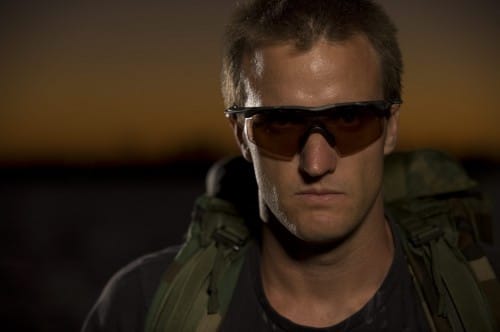
Do you have any advice for kids who want to follow your career path? It’s difficult because my story is one of being lucky and being at the right place at the right time — and the fact that I’ve been such a hard worker and been so passionate about it. So there’s really no one thing to say to kids about how to become a professional wakeboarder. The best thing I can say is something I picked up from Shaun Murray. Just continue to have a passion for it. If you don’t love it with all your heart, then you’re going to stop riding eventually. Continue for as long as you can to have a love and passion for the sport because that’s really what it’s about.
Is there anything you feel you’re going to be leaving on the table when you walk away? It’s hard for me to say, “Yeah, I’ve done everything I wanted to do in wakeboarding.” To be realistic, I think it would take me a lifetime to do everything I want to do on a wakeboard. But to be honest, I’ve done a lot. I’ve jumped off the wake and landed on a 7-foot rail 60 feet away. I’ve been in multiple videos. I’ve met tons of fans. I hopefully have inspired some kids, and I think I’ve been a positive influence. Of course, there’s plenty I’d love to do still, but I only live one time, and I want to do as much as I possibly can with that one life. I’m happy. I’m very satisfied with what I’ve done with my career.
What will you miss most about being a pro wakeboarder? Being able to go ride whenever I want to with my best friends. I’m my own boss. I do whatever I want to do whenever I want to do it. I can be as active as I want or as lazy as I want. I’m probably one of the most regimented people out of all the pro riders out there, but I’m sure at some point in my military career I’m going to be like, “I don’t want to get up at 4 a.m. Seriously, can’t we sleep at least until 6?” Really, what I’m going to miss is being on the boat with good friends. Those good friends to me are Benny G, Shaun Murray, people I ride with on a daily basis. I’m going to miss it all. It’s a super-awesome sport, and I’m blessed to be a pro wakeboarder and to have lived the dream for the past 10 years. I’m definitely going to miss it, but I don’t think I’ll have any regrets.
How do you want to be remembered in wakeboarding? Hopefully I’ll be remembered as the kid who did what he wanted to do. Hopefully people feel I was a true wakeboarder. I had a lot of passion and a lot of soul for the sport. Hopefully there will be an era in wakeboarding where all the riders are just launching tricks out into the flats. Hopefully I’m remembered as one of the originators of that style.





